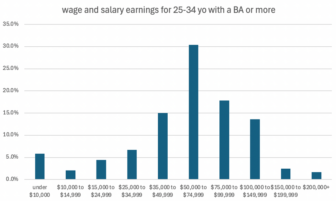Interesting study from the Fiscal Policy Institute on the role of immigrants in growing regional economies. They looked at the nation’s twenty five largest metropolitan areas – including metro Detroit – and found that immigration spurs, rather than retards, economic growth.
More specifically the growth in the immigration share of the labor force and growth in big metro economies, by and large, go hand in hand. For example, metro Phoenix which had the second largest percentage point gain in immigrant share of the labor force from 1990-2007 had, by far, the highest economic growth rate.
The new isn’t all positive. Almost never is. There is some evidence in this and other studies that immigrants, in lower skill occupations, put downward pressure on wages. Which means that the contribution immigrants make to income growth per worker is dependent on the education attainment of a region’s foreign born population
How does metro Detroit stack up? Immigrants share of the region’s economic output is eleven percent, more than their share of the population. Metro Detroit’s workforce is ten percent foreign born compared to twenty percent for the nation’s largest metros and twelve percent nationwide. Between 1990 and 2007 the region’s foreign born share of the workforce grew from 5.5% to 9.9%, the third smallest increase of the twenty largest regions nationally.
Hard to look at this data and conclude, as many do, that immigration is a cause of metro Detroit’s economic decline. In fact, the preponderance of the evidence is that the opposite is true: we would have a stronger economy if our foreign born population was closer to the national average.
Immigrants, along with recent college graduates, are part of increasingly globally mobile talent who add to economic growth. The places that will do the best are those that are welcoming to talent from anywhere on the planet.






